30+ Sample Mental Status Exam
-
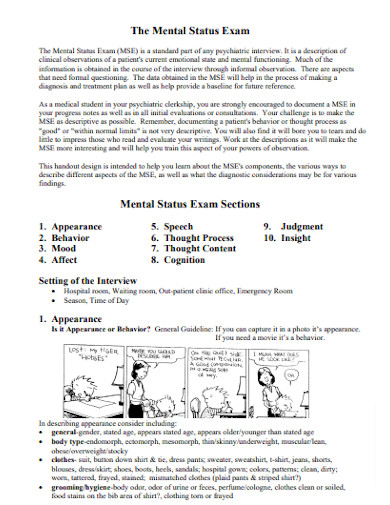
Disorder Mental Status Exam
download now -
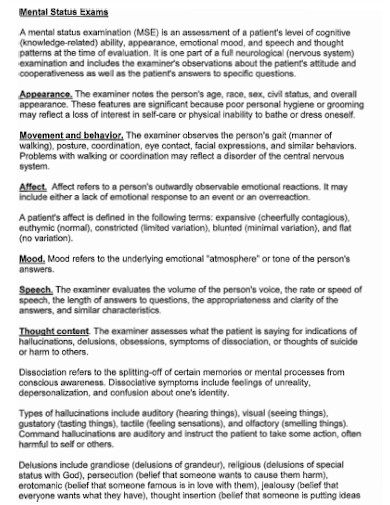
Simple Mental Status Exam
download now -
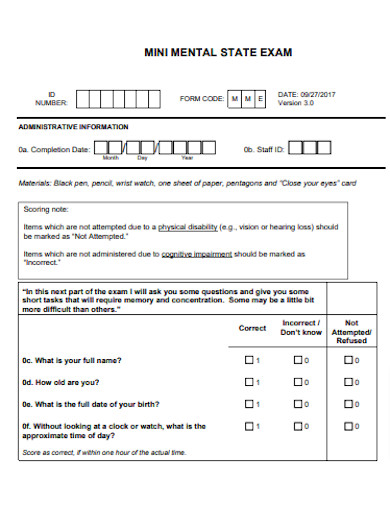
Mini Mental Status Exam
download now -
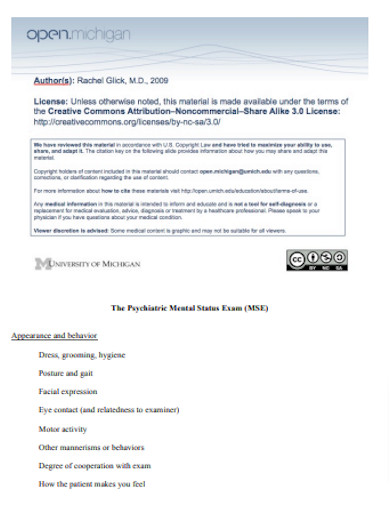
Sample Mental Status Exam
download now -
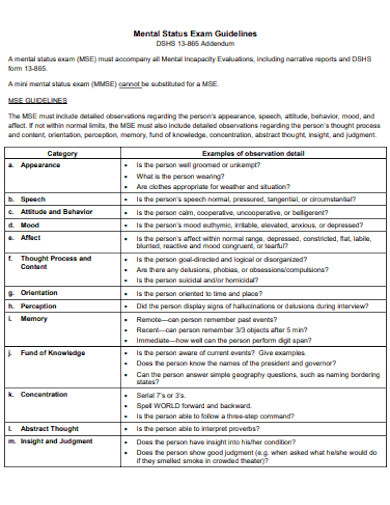
Form Mental Status Exam
download now -
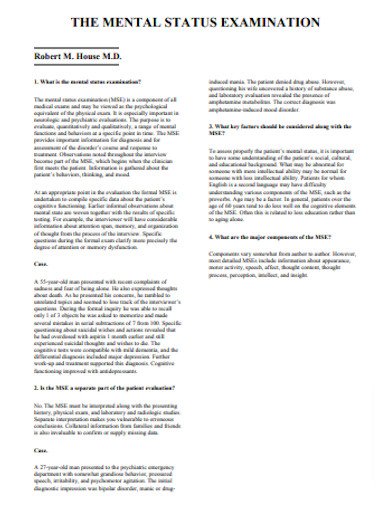
Basic Mental Status Exam
download now -
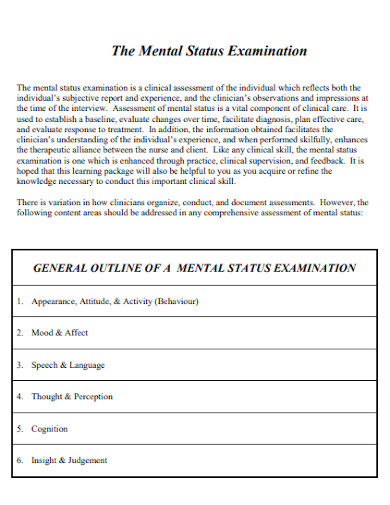
Nursing Mental Status Exam
download now -
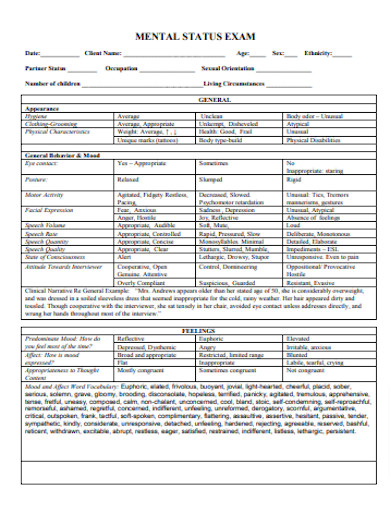
Depression Mental Status Exam
download now -
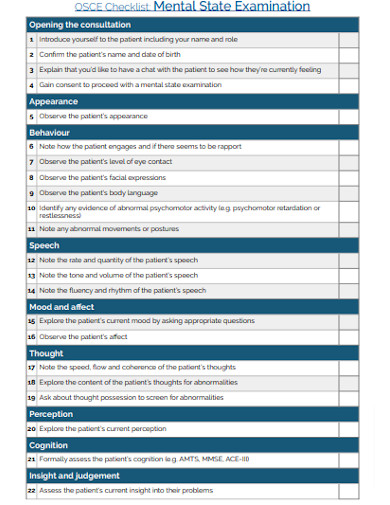
Checklist Mental Status Exam
download now -
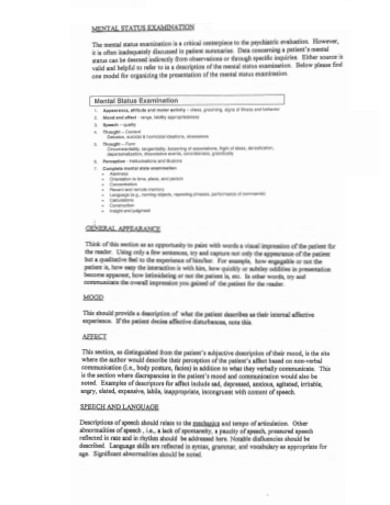
Patients Mental Status Exam
download now -
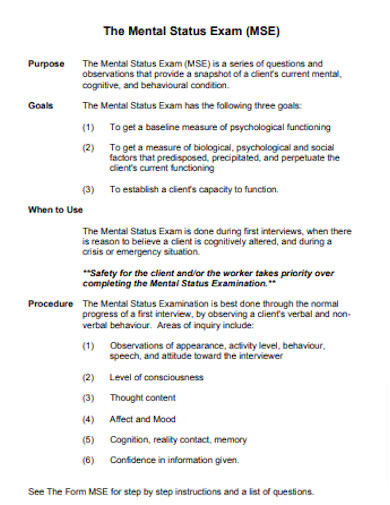
Printable Mental Status Exam
download now -
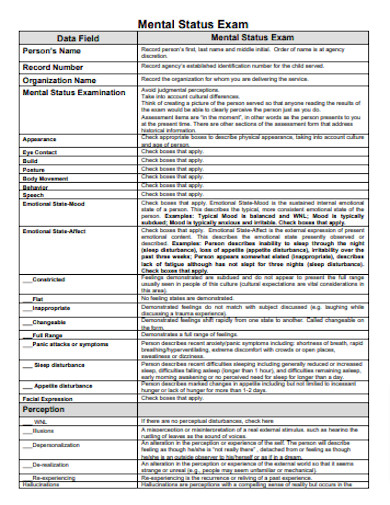
Assessment Mental Status Exam
download now -
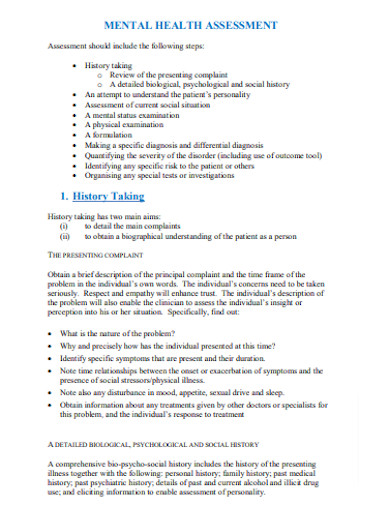
Mental Health Assessment Status Exam
download now -
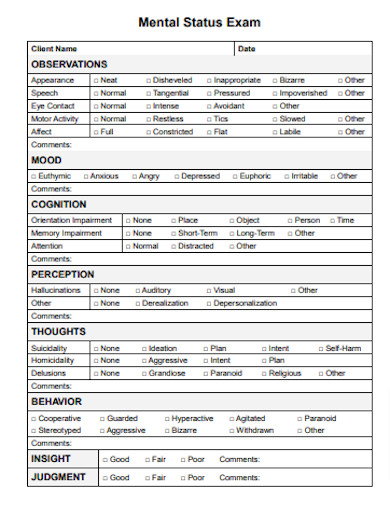
Client Mental Status Exam
download now -
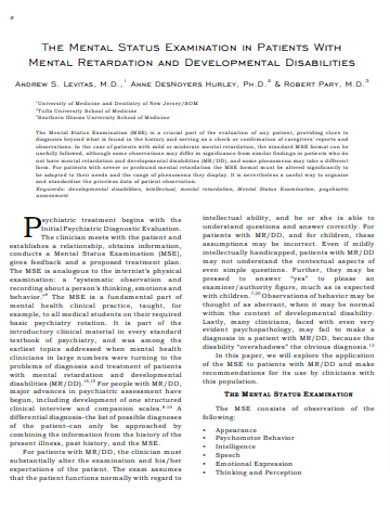
Editable Mental Status Exam
download now -
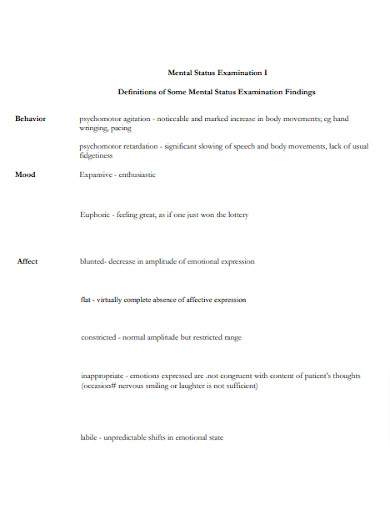
Formal Mental Status Exam
download now -
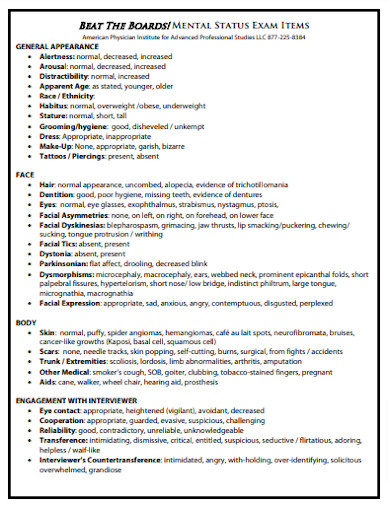
Mental Status Exam Review
download now -
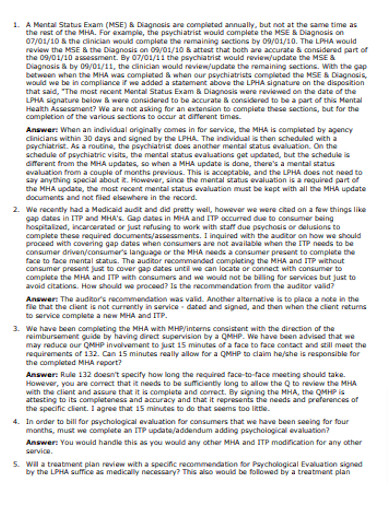
Mental Status Exam Outline
download now -
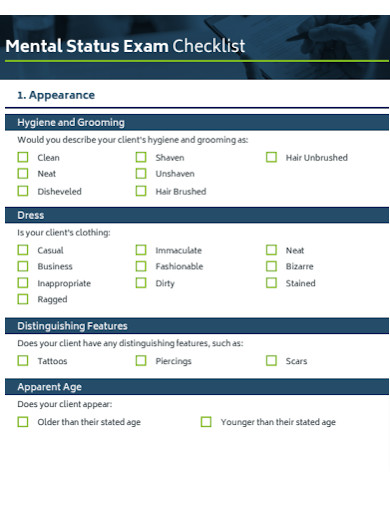
Mental Status Exam Cheat Sheet
download now -
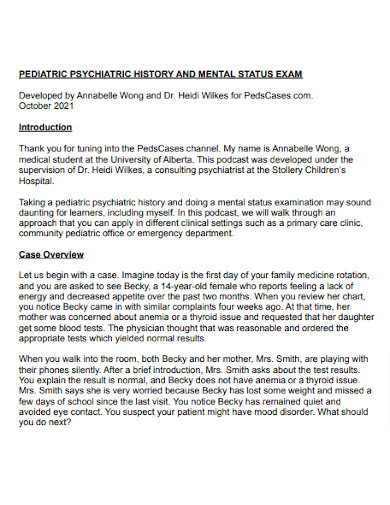
Pediatric Mental Status Exam
download now -
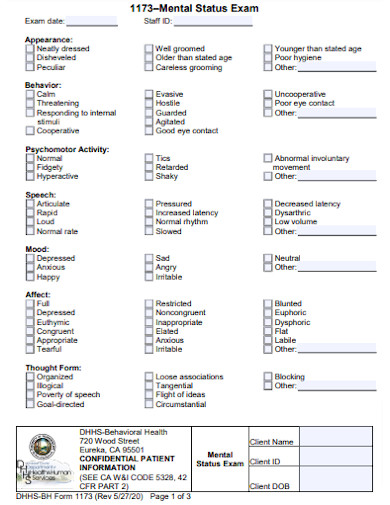
Mental Status Exam Layout
download now -
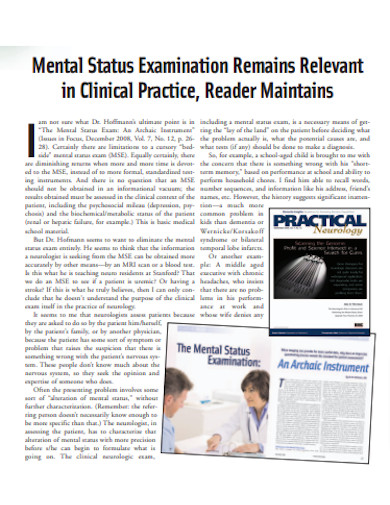
Clinical Mental Status Exam
download now -
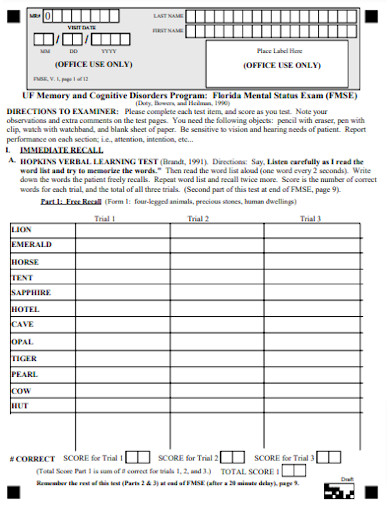
Florida Mental Status Exam
download now -
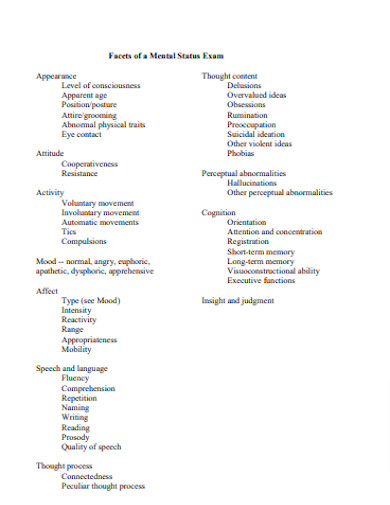
Mental Status Exam Format
download now -
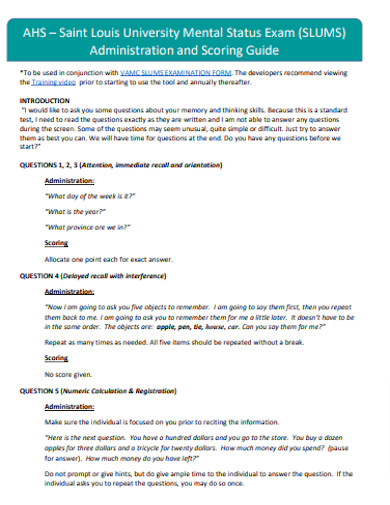
Mental Status Exam Guide
download now -
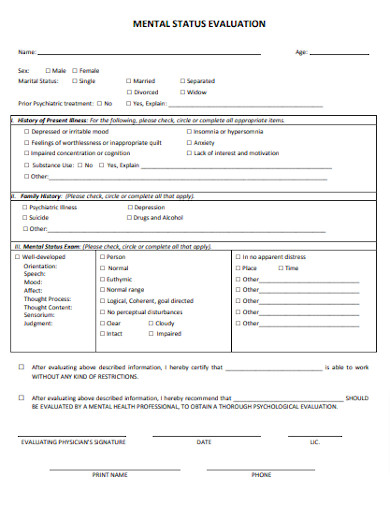
Mental Status Exam Evaluation
download now -
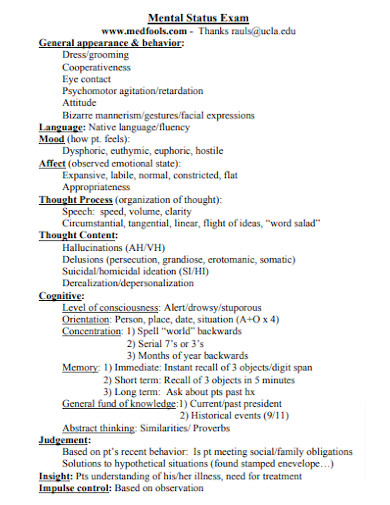
General Mental Status Exam
download now -
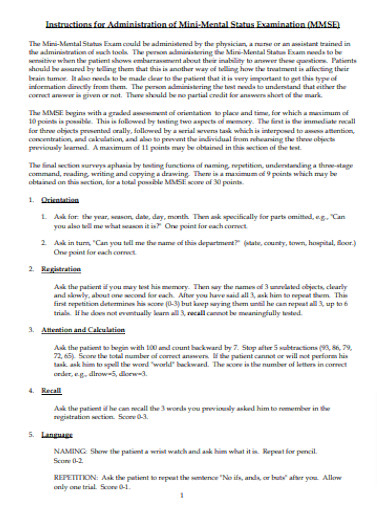
Standard Mental Status Exam
download now -
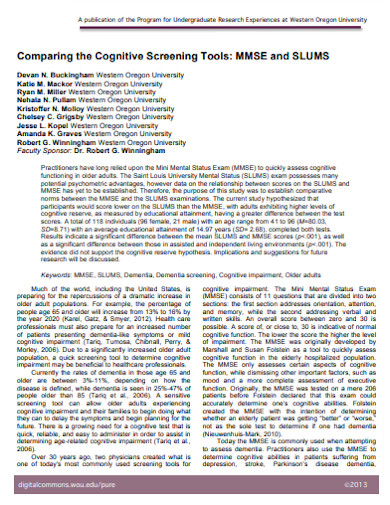
Mental Status Exam in PDF
download now -
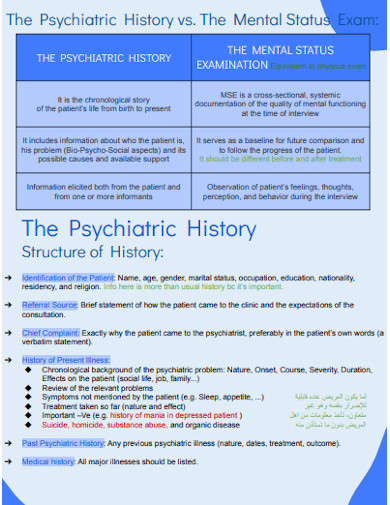
Psychiatric Mental Status Exam
download now -
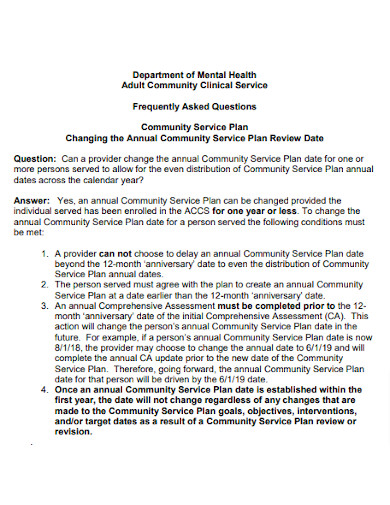
Department Mental Status Exam
download now
FREE Mental Status Exam s to Download
30+ Sample Mental Status Exam
What is a Mental Status Exam?
Types of Mental Status Exams
How to Create an Effective and Systematic Mental Status Exam
FAQs
What is the purpose of a Mental Status Exam (MSE) in assessing psychological well-being?
What are the key components of an MSE template?
Where can I find a fillable and printable mental status exam template?
How can understanding the MSE help in identifying mental health issues?
What are some common indicators of cognitive functioning evaluated in an MSE?
What role does the thought process assessment play in the MSE?
Are there any standardized scoring systems for the MSE?
What is a Mental Status Exam?
A Mental Status Exam (MSE) is a fundamental tool utilized across mental health counseling, nursing, psychiatry, and various medical disciplines to comprehensively assess an individual’s cognitive and emotional well-being. Often facilitated through a fillable printable mental status exam template, this structured evaluation delves into critical aspects such as appearance, behavior, mood assessment checklist, cognition, motor activity, and thought process. The MSE format encompasses observing a patient’s appearance and behavior, evaluating their mood and affect, analyzing cognitive functions such as memory and concentration, assessing motor activity levels, and scrutinizing the thought process for coherence and organization. This template-driven approach enables practitioners to gain valuable insights into a patient’s mental state, facilitating informed diagnoses and tailored treatment plans.
Mental health professionals, including doctors, mental health counselors, and nurses, utilize MSEs to establish a baseline for tracking progress, enhancing inter-disciplinary communication, publishing medical reports, and offering holistic care in a standardized manner, ensuring that crucial nuances are not overlooked. Studies reveal that integrating MSEs leads to remarkable benefits for both practitioners and patients. According to the National Institute of Mental Health, employing MSEs increases diagnostic accuracy by up to 70%, fostering precise identification of mental health conditions. This accuracy, in turn, streamlines treatment pathways, saving patients time and potentially preventing misdiagnoses. Furthermore, as reported by the World Health Organization, MSEs contribute significantly to improving mental health awareness among individuals, catalyzing proactive engagement with mental well-being. This, in essence, underlines the MSE’s pivotal role in shaping a comprehensive, patient-centric approach to mental health assessment and care.
Types of Mental Status Exams
Discover the diverse approaches to mental health assessment through various types of Mental Status Exams (MSEs). Each method offers unique insights into cognitive and emotional well-being, aiding professionals in tailoring effective interventions for individuals’ mental health challenges.
How to Create an Effective and Systematic Mental Status Exam
Developing an impactful Mental Status Exam (MSE) requires precision and strategy. This section outlines essential steps to design a comprehensive and systematic assessment tool for accurate mental health evaluation.
Step 1: Determine Assessment Objectives
Outline the purpose of your Mental Status Exam (MSE). Define if it’s for mental health counseling, nursing, or psychiatry. Clarify the scope: will it cover appearance, behavior, mood assessment checklist, cognition, motor activity, and thought process? Having a clear objective ensures your MSE is tailored to the specific needs of your target audience.
Step 2: Design a Comprehensive Template
Create a fillable printable mental status exam template that includes sections for appearance, behavior, mood assessment checklist, cognition, motor activity, and thought process. Organize these elements systematically to facilitate easy data collection and analysis. Your template’s structure forms the backbone of your MSE, guiding both the evaluator and the patient.
Step 3: Establish Evaluation Criteria
Develop specific criteria for each aspect you’re assessing. For appearance, consider clothing, grooming, and hygiene. For behavior, note any unusual gestures or actions. A mood assessment checklist can involve emotions expressed. For cognition, assess memory, attention, and comprehension. Motor activity includes psychomotor agitation or retardation. The thought process covers coherence, organization, and content.
Step 4: Standardize Observation Techniques
Maintain consistency in how you observe and record information. Use the same set of questions or tasks for each assessment aspect. Adopt a neutral stance, avoiding judgment or assumptions. This approach ensures reliable data collection and minimizes bias, especially when different professionals are involved in mental health counseling, nursing, or psychiatry.
Step 5: Consider Interdisciplinary Collaboration
Involve various professionals, such as doctors, nurses, and mental health counselors, to enhance the comprehensiveness of your MSE. Gather feedback on the effectiveness of your fillable printable mental status exam template. Collaborative input ensures a well-rounded evaluation, improving the accuracy and relevance of the gathered information.
FAQs
What is the purpose of a Mental Status Exam (MSE) in assessing psychological well-being?
The purpose of a Mental Status Exam (MSE) in assessing psychological well-being is to systematically evaluate an individual’s mental functioning and overall mental health. It aims to provide a comprehensive snapshot of their cognitive, emotional, and behavioral state at a specific point in time. By assessing various aspects of an individual’s mental status, such as appearance, behavior, mood, cognition, and thought processes, the MSE helps in identifying any potential mental health issues or abnormalities.
What are the key components of an MSE template?
The key components of an MSE template typically include sections for appearance, behavior, speech, mood, affect, thought processes, thought content, perception, cognition, insight, and judgment. These components provide a structured framework for evaluating different aspects of an individual’s mental status. The template may also include space for recording additional observations or specific prompts to guide the examiner in conducting a thorough assessment.
Where can I find a fillable and printable mental status exam template?
Fillable and printable mental status exam templates can be found online on various websites and resources dedicated to mental health assessments. These templates are designed to be easily downloadable and customizable, allowing mental health professionals to adapt them to their specific needs. Some examples of websites where you can find MSE templates include professional organizations, mental health clinics, and academic institutions.
How can understanding the MSE help in identifying mental health issues?
Understanding the MSE can greatly assist in identifying mental health issues by providing valuable insights into an individual’s psychological functioning. Through a thorough evaluation of the individual’s appearance, behavior, and mood, mental health professionals can detect any signs of distress, abnormality, or potential mental disorders. The assessment of cognitive functioning allows for the identification of any cognitive impairments or deficits that may be indicative of neurological disorders or cognitive decline. Additionally, the assessment of motor activity and thought processes helps in understanding the individual’s mental state and any potential disturbances in their thinking patterns.
What are some common indicators of cognitive functioning evaluated in an MSE?
Common indicators of cognitive functioning evaluated in an MSE include attention, memory, orientation, language, and executive functioning. Attention is assessed by evaluating the individual’s ability to focus and sustain attention on tasks or conversations. Memory is assessed by testing both immediate and delayed recall of information. Orientation refers to the individual’s awareness of time, place, and person. Language assessment involves evaluating their ability to understand and express themselves verbally. Executive functioning encompasses higher-level cognitive processes such as problem-solving, decision-making, and planning.
What role does the thought process assessment play in the MSE?
Thought process assessment plays a crucial role in the MSE as it examines the individual’s patterns of thinking and how they organize their thoughts. It involves evaluating the coherence, logic, and flow of their thoughts. Thought process abnormalities, such as racing thoughts, tangential thinking, or perseveration, can be indicative of psychiatric disorders or cognitive impairments. Assessing the thought process provides insights into the individual’s cognitive functioning and can aid in diagnosing mental health conditions.
Are there any standardized scoring systems for the MSE?
While there are no standardized scoring systems for the MSE, mental health professionals often use their clinical judgment to interpret the gathered information and make assessments based on their observations. The MSE is a qualitative assessment that relies on the examiner’s expertise and experience in evaluating an individual’s mental status. The findings from the MSE are typically documented in a narrative format, describing the individual’s presentation and any notable abnormalities or concerns.
By systematically evaluating various aspects of their appearance, behavior, mood, cognition, and thought processes, the Mental Status Exam (MSE) provides insights into potential mental health issues or abnormalities. Understanding the components of the MSE, such as appearance, behavior, mood, cognition, and thought processes, allows mental health professionals to accurately identify and diagnose mental disorders while using mood disorder questionnaires. The MSE plays a crucial role in mental health counseling, nursing practice, psychiatry, and overall patient care. It serves as a foundation for tailored interventions and treatment plans while monitoring changes and progress using mental health progress notes throughout the therapeutic process. Further learning resources are available to enhance knowledge and skills in utilizing the MSE effectively. Overall, understanding the MSE is essential for professionals working in the field of mental health to provide comprehensive care and support to individuals’ psychological well-being.
